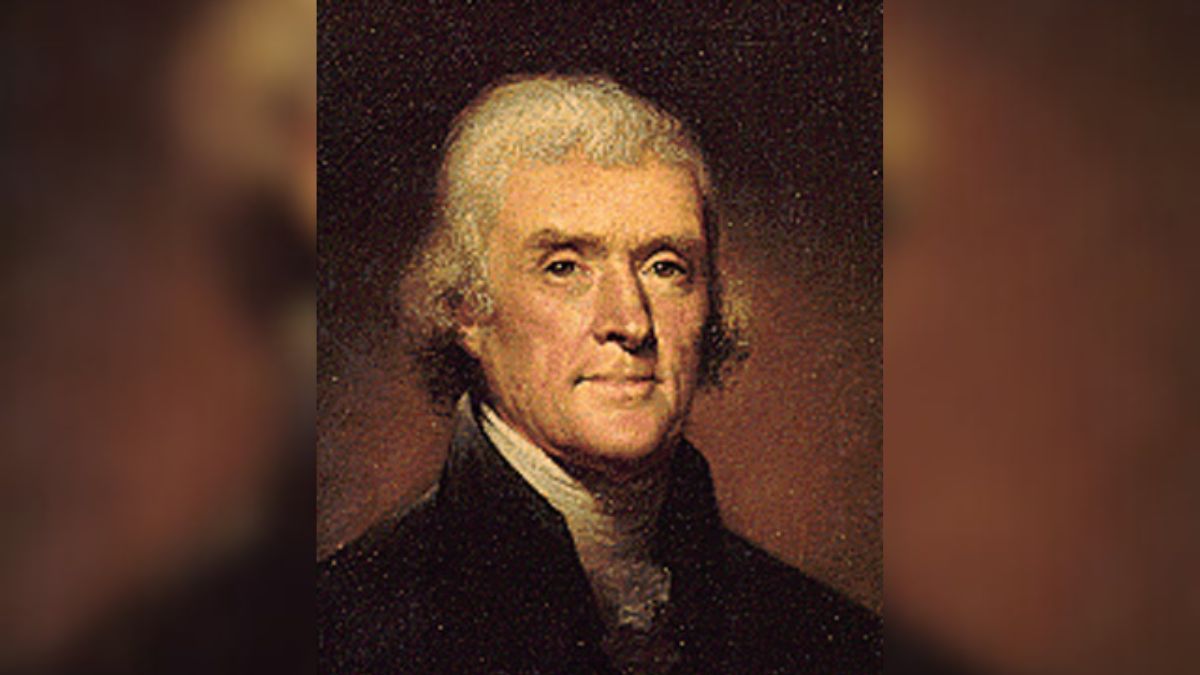Editor’s Note: This profile is part of a series taking a closer look at US presidents ahead of the 2024 presidential election between Donald Trump and Kamala Harris.
Thomas Jefferson, the third president of the United States, is one of the most influential figures in American history.
Known as the principal author of the Declaration of Independence and a leading advocate of democracy and individual rights, Jefferson’s presidency was marked by significant territorial expansion, notably the Louisiana Purchase, and a commitment to limited government.
His vision for the US helped shape the nation’s political landscape and its westward growth.
The rise of Thomas Jefferson
Thomas Jefferson was born on April 13, 1743, in Shadwell, Virginia, into a prominent family of planters. He studied at the College of William & Mary and later trained as a lawyer, entering Virginia’s colonial legislature in 1769.
His intellectual curiosity, deep study of political philosophy, and belief in Enlightenment ideals quickly positioned him as a leading voice in the colonies’ growing resistance to British rule.
Jefferson’s rise to national prominence came with his authorship of the Declaration of Independence in 1776.
As a delegate to the Continental Congress, Jefferson was tasked with drafting the document, which eloquently outlined the colonies’ desire for independence and their natural rights. The Declaration cemented his place as a central figure in the American Revolution.
The role of Thomas Jefferson: Governor, Diplomat, and US Secretary of State
After serving as the wartime governor of Virginia (1779-1781), Jefferson retired briefly from public life but returned to the national stage in 1785 as the United States’ Minister to France. His experience in Europe exposed him to French revolutionary ideals and solidified his belief in republicanism and the rights of the common man.
Upon his return to the US, Jefferson became the nation’s first Secretary of State under the first US President, George Washington in 1790.
In this role, Jefferson often clashed with US Treasury Secretary Alexander Hamilton over the direction of the new government. While Hamilton favoured a strong central government and close ties with Britain, Jefferson advocated for a limited federal government, a strict interpretation of the Constitution, and support for France.
These ideological differences laid the foundation for the emergence of America’s first political parties, with Jefferson leading the Democratic-Republicans against Hamilton’s Federalists.
A vice presidency & the ‘Revolution of 1800’
After losing the contentious presidential election of 1796 to John Adams, Jefferson became vice president under the Federalist administration. The election of 1800, however, saw a dramatic turn in Jefferson’s favour.
He ran again, and after a protracted tie in the Electoral College with his running mate, Aaron Burr, the House of Representatives broke the deadlock, making Jefferson the 3rd president of the United States.
His victory marked the first peaceful transfer of power between political parties in US history, which Jefferson famously called the “Revolution of 1800.”
A Jefferson presidency
Jefferson’s presidency (1801-1809) was defined by his belief in limited government, a frugal budget, and an emphasis on states’ rights.
Early in his administration, he reduced the national debt, cut taxes, and scaled back military spending, reflecting his view that the federal government should interfere as little as possible in the daily lives of citizens.
The most significant achievement of Jefferson’s presidency was the Louisiana Purchase in 1803. For $15 million, the United States acquired a vast territory from France, doubling the size of the nation and providing access to the strategic port of New Orleans.
Although the Constitution did not explicitly grant the president the power to acquire new territory, Jefferson pragmatically justified the purchase as necessary for the nation’s expansion.
_Follow Firstpost's coverage of the 2024 US presidential election_Jefferson also commissioned the famous Lewis and Clark Expedition (1804-1806) to explore the newly acquired land and chart a path to the Pacific Ocean. This expedition greatly enhanced American knowledge of the western territories and encouraged westward migration.
The foreign policy of Thomas Jefferson
Jefferson’s second term was dominated by challenges in foreign policy, particularly involving Britain and France, which were engaged in the Napoleonic Wars. American ships were caught in the crossfire, with both nations seizing US vessels and impressing sailors.
In response, Jefferson passed the Embargo Act of 1807, a sweeping ban on American trade with foreign nations. He hoped this would pressure Britain and France to respect American neutrality, but the act instead devastated the US economy, particularly in New England.
The unpopular embargo was lifted shortly before Jefferson left office in 1809.
Life after presidency
After his presidency, Jefferson retired to Monticello, his Virginia plantation, where he remained active in public affairs and intellectual pursuits. He corresponded with other founding fathers, particularly John Adams, with whom he reconciled after years of political rivalry.
Jefferson also founded the University of Virginia in 1819, reflecting his lifelong commitment to education and the advancement of knowledge.
Jefferson’s later years were marked by financial difficulties, but his intellectual influence remained strong until his death on July 4, 1826, exactly 50 years after the adoption of the Declaration of Independence.
Coincidentally, his fellow former president John Adams also died on the same day.
The legacy of Thomas Jefferson
Thomas Jefferson’s legacy as a statesman, intellectual, and visionary is profound. His advocacy for individual liberty, democracy, and religious freedom helped shape the early United States and continues to influence American political thought.
The Louisiana Purchase expanded the nation’s borders and laid the groundwork for its future as a continental power.
However, Jefferson’s legacy is also complicated by his contradictory views on slavery. While he wrote eloquently about liberty and equality, Jefferson owned hundreds of enslaved people throughout his life, including Sally Hemings, with whom he is believed to have had children.
This paradox between his ideals and his personal actions remains a topic of debate and reflection.


)

)
)
)
)
)
)
)
)



